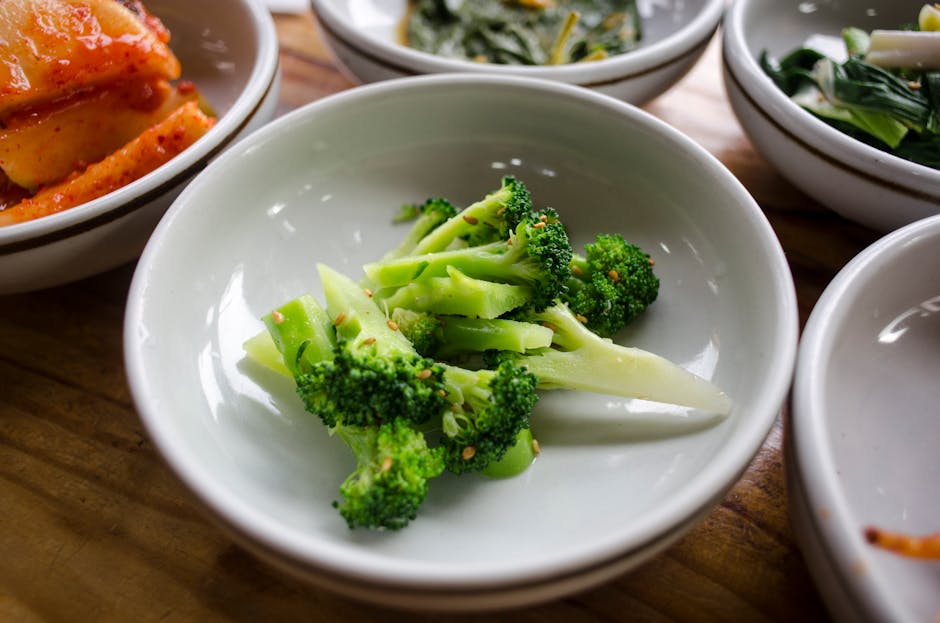
You Won't Believe the 12 Foods That Are Secretly Sabotaging Your Diet
We’ve all been there - diligently tracking our calorie intake, exercising regularly, and making healthy choices… only to feel like we’re not seeing the results we want. Maybe you’ve hit a plateau, or perhaps your progress has slowed to a crawl. The truth is, even with the best intentions and a solid plan in place, our diets can be sabotaged by foods that seem harmless but are actually working against us.
The key is understanding what’s happening behind the scenes - the way certain nutrients interact with our bodies, the role of ingredients we may not be considering, and the ways in which even healthy foods can have an unexpected impact. By shining a light on these often-overlooked factors, we can make informed choices that help us reach our goals.
One of the most surprising culprits? Foods that are touted as “healthy” or at least nutritious. Think about it - if you’re eating something that’s supposed to be good for you, shouldn’t it help with weight loss, energy levels, and overall well-being? But what if these same foods were actually undermining your efforts?
1. Fruit Juice
It seems counterintuitive, but fruit juice can do more harm than good when it comes to dieting. The truth is that drinking juice in excess can lead to an overload of natural sugars, spiking our blood sugar levels and triggering a response from the body’s fat storage system. Think about it - even 100% fruit juice contains fructose, which can be particularly problematic for those with insulin sensitivity issues.
The numbers don’t lie: research has shown that women who consumed fruit juice daily were more likely to gain weight over time, compared to those who drank water or other calorie-free beverages. And if you’re trying to cut calories, think twice before pouring yourself a glass of “healthy” apple juice - a 16-ounce serving can contain as many calories as two slices of whole-grain bread!
2. Dried Fruits
Those chewy apricots and succulent raisins might be tempting when you’re on the go, but they pack a punch when it comes to sugar content. A single ounce of dried fruit (about the size of a small handful) can contain up to 4 grams of sugar - not to mention the calories and carbs that come with it.
Worse still, some dried fruits have been found to be high in added sugars, which can further exacerbate blood sugar issues and hinder weight loss. When choosing dried fruits, opt for unsweetened options or those labeled as “unsulphured” (sulphur dioxide is a preservative that can also impact blood sugar levels).
3. Sports Drinks
While sports drinks might seem like a no-brainer when it comes to replenishing electrolytes and energy after a tough workout, the truth is they’re often more trouble than they’re worth - especially if you’re not an athlete or haven’t engaged in high-intensity exercise.
A single serving of some popular sports drinks can contain up to 35 grams of sugar (yes, that’s about as much as six spoonfuls of granulated sugar!) and over 200 calories. Considering most adult women require only around 2,000-2,400 calories per day, the excess energy from a sports drink is simply not needed - especially if you’re trying to lose weight.
4. Sugary Yogurt
Greek yogurt might be a great source of protein and probiotics, but many commercial varieties can sabotage your diet by hiding high amounts of sugar within their seemingly innocent flavor profiles. In some cases, the added sugars can exceed those found in traditional ice cream!
Don’t get us wrong - not all yogurts are created equal! Look for brands that explicitly state they use “natural” or “unflavored” yogurt as a base and opt for plain, full-fat options to avoid unnecessary sugar additions.
5. Muesli
Those crunchy muesli bites might be tempting as an on-the-go snack, but some commercial varieties contain alarming amounts of added sugars - sometimes exceeding the recommended daily intake! When you’re trying to watch your figure, it’s hard to justify a snack that packs more sugar than a candy bar.
The good news is that you can easily make your own muesli at home with unsweetened ingredients and healthy fats. By doing so, you’ll save money and calories, not to mention the added sugars found in commercial products!
6. Low-Fat Granola
Granola might seem like a healthy breakfast or snack option - after all, it’s made from whole grains and nuts! However, many store-bought granolas have had their fat content reduced by using artificial ingredients and hydrogenated oils.
This can lead to an imbalance of omega-3 and omega-6 fatty acids in the body, which is crucial for hormone production and weight regulation. Plus, those added sugars we mentioned earlier? You guessed it - they’re still there!
7. Tomato Sauce
While homemade tomato sauce can be a staple in any Italian kitchen, store-bought versions often contain high amounts of added sugars to balance out the acidity from tomatoes.
According to some estimates, a single serving (1/4 cup) can contain up to 2 grams of sugar - not too bad on its own, perhaps. However, when you’re trying to keep your sugar intake in check while cooking meals for the family or yourself, these sneaky sugars add up quickly!
8. Canned Soup
Soup might be a comfort food classic, but many commercial varieties rely heavily on added preservatives and sodium content - often at the expense of natural flavor profiles.
What’s more, some canned soups can contain alarming amounts of saturated fats and artificial ingredients like monosodium glutamate (MSG). Choose low-sodium options or make your own soup from scratch using fresh vegetables and lean proteins.
9. Pre-Sliced Cheese
Convenience might be the name of the game for pre-sliced cheese, but beware: these slices often contain additives to extend shelf life - which can negatively impact our diet goals.
Some studies have found that those who consume processed meats (including aged cheeses) on a regular basis are more likely to experience weight gain and metabolic issues due to excessive sodium and saturated fat intake.
10. Fruit-Infused Water
It seems like a harmless solution for staying hydrated, right? Fruit-infused water might be low in calories, but high amounts of sugar from the fruit can add up quickly - sometimes exceeding 1/4 cup’s worth!
While moderation is key here, some commercial brands take it too far by adding more sugar than needed to enhance flavor profiles. Opt for unsweetened infused water or make your own using fresh fruits and herbs.
11. Nutritional Bars
Even the best-intentioned nutrition bars can be sabotaging your diet goals if they’re high in added sugars, artificial ingredients, and unhealthy fats. Some commercial brands contain as much sugar as a candy bar - which is particularly jarring when you consider the nutritional value of these supposedly “healthy” snacks!
When choosing a bar, look for ones that use wholesome ingredients and limit their sugar content to 8 grams or less per serving.
12. High-Fat Granola Bites
Those bite-sized energy balls might be a healthy snack option in moderation, but beware: some commercial recipes call for high amounts of added sugars (sometimes exceeding 2 tablespoons!) along with unhealthy fats and artificial preservatives.
When making your own granola bites at home, focus on using natural ingredients like nuts, seeds, and dried fruits to create wholesome snacks that satisfy hunger without the unnecessary calories!
So there you have it - a list of foods that might seem innocent but can be sabotaging your diet goals. By understanding these hidden culprits, we can take control of our nutrition plans and make informed choices that set us up for success.





